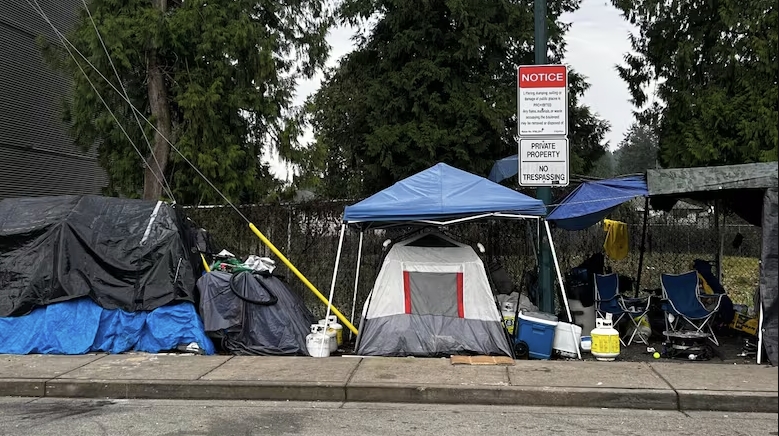B.C. Cities Struggle to Address Tent Encampments Amid Growing Homelessness Crisis
Emma MacLeod
12/30/20242 min read


Tent encampments in British Columbia are highlighting a growing homelessness crisis, as cities like Coquitlam and Abbotsford balance public safety concerns with the urgent need to support vulnerable residents.
In Abbotsford, a tent encampment outside city hall serves as both a protest and a makeshift community for those unable to secure housing. Residents like Ledora Napoleon, who has faced multiple evictions and discrimination due to being on income assistance, describe their tents as the only viable option.
“Why do I live here? Because it’s so hard to find housing in Abbotsford,” Napoleon said.
Abbotsford Mayor Ross Siemens acknowledges the city’s troubled history with homelessness, including a 2013 incident where chicken manure was spread to discourage campers. While the city is now focused on ensuring safety and providing outreach support, campers are demanding a designated space with basic facilities where they can live without fear of eviction.
Jenny Robbins, a resident of the Abbotsford encampment, emphasized the community aspect of the camp. “We take care of each other … and then we don’t have to be in anyone’s way,” she said.
Systemic Challenges
Municipal leaders like Siemens and Coquitlam Coun. Craig Hodge argue that the homelessness crisis stems from a lack of provincial and federal resources. While cities rely on property taxes to fund essential services, addressing homelessness requires investments in housing, health care, and harm reduction programs.
“We’re trying to do what we can … but we really need help from the province to try to meet the needs here,” Hodge said.
The provincial government’s Belonging in B.C. plan aims to address homelessness through a $633 million investment over three years, providing pathways to shelter and supportive housing. However, the demand continues to outpace supply, with homelessness increasing across Metro Vancouver.
Legal and Ethical Questions
Courts have become more cautious about granting injunctions to break up encampments. A 2023 ruling allowed Abbotsford to enforce its bylaws but required the city to ensure adequate shelter options with harm reduction services before evicting campers.
UBC law professor Stepan Wood argues that governments must adopt a more balanced approach, as recommended by Canada’s Human Rights Commission. Its February report urged officials to ensure camps have basic necessities, end forced evictions, and implement a coordinated, well-funded response.
Wood criticized Vancouver’s handling of encampments, calling the dismantling of CRAB Park’s legal encampment a “cautionary tale” of unmet needs and inadequate relocation support.
Personal Stories
In Coquitlam, tent encampments have formed outside shelters that lack the capacity to provide comprehensive services. Longtime homeless resident Kimberlee Kirton recently secured a spot inside a Coquitlam shelter but says she’s still struggling to access the health and addiction services she needs.
Her mother, Sharon Sinclair, urges governments to listen to those living in encampments and invest in long-term solutions.
“Build more affordable housing. Build more programs for these people. They need help,” Sinclair said.
As municipalities, provincial leaders, and advocacy groups grapple with these complex challenges, residents and campers alike are waiting for concrete steps to address the systemic roots of homelessness.
News
Stay updated with the latest BC news stories, subscribe to our newsletter today.
SUBSCRIBE
© 2025 Innovatory Labs Inc.. All rights reserved.
LINKS
